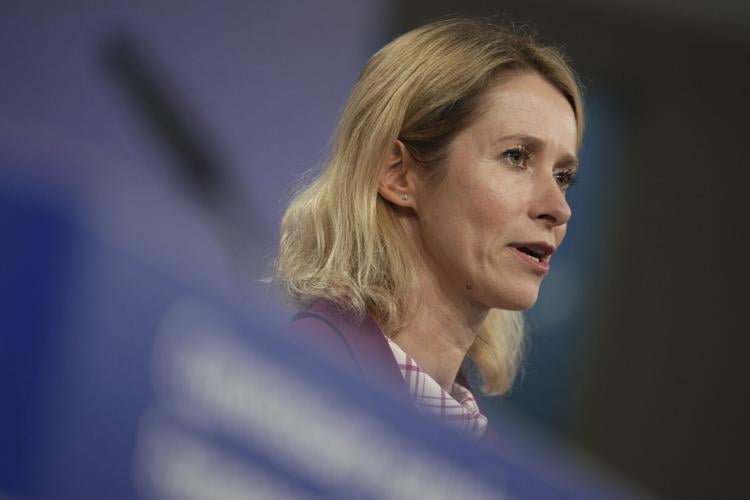
The European Union (EU) has outlined a series of significant tariffs and sanctions targeting Israel, aimed at pressuring the nation to cease its military operations in Gaza. This announcement comes as the humanitarian situation in the region deteriorates, with large numbers of Palestinians fleeing amidst ongoing conflict. The proposal was made on Wednesday by Kaja Kallas, the EU’s foreign policy chief, during a meeting with representatives from the EU’s 27 member states.
Kallas urged the member nations to implement increased tariffs on certain Israeli goods and to impose sanctions on ten leaders associated with Hamas, as well as Israeli officials including Itamar Ben-Gvir, the National Security Minister, and Bezalel Smotrich, the Finance Minister. “We are proposing these measures not to punish Israel or its people, but to genuinely pressure the Israeli government to change course and end the human suffering in Gaza,” Kallas explained.
The proposed sanctions would involve freezing assets of the targeted individuals within the EU and restricting their travel. As the EU is Israel’s largest trading partner, the potential impact on the Israeli economy could be significant, especially considering the ongoing costs of the conflict. The European Commission has indicated that roughly €32 million (approximately $37.5 million) in bilateral funds would be suspended immediately, affecting financial support previously provided to the Palestinian Authority.
In response, Israeli Foreign Minister Gideon Saar expressed strong opposition in a letter to Ursula von der Leyen, the President of the European Commission. He asserted that the Israeli government would not yield to pressure from sanctions, emphasizing Israel’s sovereignty and security interests. “Pressure through sanctions will not work. The State of Israel is a proud sovereign nation, and we will not be bent through threats,” Saar stated.
The EU has faced internal divisions regarding its approach to the Israel-Palestine conflict throughout the past 23 months of war. As the death toll in Gaza approaches 65,000 since the onset of hostilities on October 7, 2023, protests have erupted across various European cities, reflecting public discontent over the EU’s perceived inaction in addressing the humanitarian crisis.
In light of these developments, Maroš Šefčovič, the European Commission’s trade representative, described the proposed sanctions as a “carefully considered response to an increasingly urgent situation.” Should a majority of EU nations endorse the measures, tariffs amounting to about €230 million (around $166 million) could be imposed on approximately 37% of the €15.9 billion worth of Israeli goods imported into the EU, which currently enjoy zero tariffs under an existing Association Agreement.
A review conducted by the EU diplomatic corps in June indicated that Israel had violated the human rights provisions outlined in Article 2 of the Association Agreement. Critics of Israel within Europe have called for a complete suspension of the trade deal, but the current proposal seeks to revoke preferential tariff treatment on select goods instead of a total trade suspension.
The recent shift in policy was also noted following von der Leyen’s announcement that she would pursue sanctions and a partial trade suspension against Israel, marking a departure from her previously staunch pro-Israel stance. European officials have suggested that Israel’s military activities in Gaza, along with escalating settlement activities in the West Bank led by Ben-Gvir and Smotrich, have created “new momentum” for these sanctions. Notably, the proposal does not affect Israeli arms exports to the EU.
As discussions continue, the EU remains at a crossroads, balancing political pressures, humanitarian concerns, and the complexities of international relations in a conflict that has drawn global attention and criticism.







